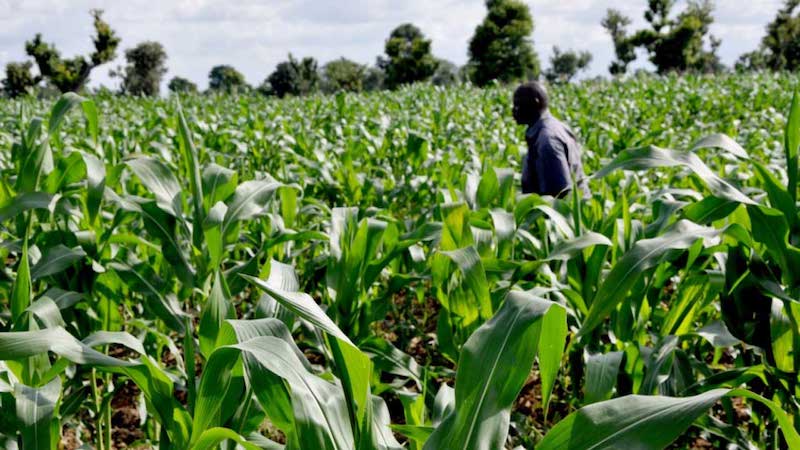Farmers and agricultural experts have called on the Federal Government to take deliberate and sustained policy actions to maintain the recent decline in food prices across the country.
The appeal follows reports that food inflation dropped from 21.87 per cent in August to 16.87 per cent in September, according to the National Bureau of Statistics (NBS), largely driven by seasonal harvests and short-term market relief.
While describing the development as a welcome reprieve for consumers, stakeholders warned that the gains might be temporary unless government addresses the structural factors driving food inflation.
The Minister of State for Agriculture and Food Security, Mr. Aliyu Sabi, had earlier attributed the decline to improved local production and ongoing intervention programmes. However, the All Farmers Association of Nigeria (AFAN) said more consistent policies were needed to sustain the progress.
AFAN President, Kabir Ibrahim, said although the harvest season had created a short-term dip in prices, the fundamentals of production remained weak.
“The minister’s statement reflects the current market trend, but seasonal harvests and low consumer purchasing power are the real factors driving the temporary drop. Without addressing the high cost of fertiliser, agrochemicals and labour, prices will rise again once the harvest season ends,” he cautioned.
He urged government to lower input costs, strengthen extension services, and improve rural infrastructure to sustain production and prevent post-harvest losses.
An agricultural economist, Mr. Gabriel Godwin, noted that high transport costs, poor road networks, and foreign exchange volatility continued to undermine food affordability.
“Transportation directly affects prices. When trucks spend days on bad roads or pay multiple levies along the route, the cost ends up on consumers. Reducing production costs and fixing rural roads will make price stability more achievable,” he explained.
For farmer Mr. Owoicho Enemali, President Bola Tinubu’s call for reduced food prices is well-intentioned but cannot yield lasting results without tackling deeper challenges.
“Farmers are carrying the heaviest burden. Unless the cost of fertiliser, fuel, and labour comes down, this price relief may only last a few months,” he said.
Another farmer, Mr. Sampson Tion, lamented that most smallholders still operate at a loss due to insecurity and inadequate support.
“The cost of production in this country is very high. Farmers are being asked to lower prices without subsidy or structured incentives,” he said.
The stakeholders collectively urged government to deepen collaboration with farmers’ associations, strengthen input supply chains, and ensure that agricultural policy is both inclusive and consistent.
They maintained that only strategic intervention across production, logistics, and market access would guarantee that Nigeria’s recent food price relief becomes sustainable.



